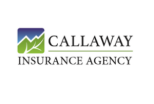I have been visiting with a friend of mine at the Arlington Chamber of Commerce off and on about small business owners. Sam Emmerson is a business advisor and works for the Tarrant Small Business Development Center. Sam has the pleasure assisting many small businesses in many different manners.
He offers advice, market research reports, Quick Books Trouble shooting, helps with business plans and assists with business loans and obtaining services to facilitate access to capital. All at no charge, the SBDC Network provides these services.
Sam also has the experience of building his own business over a period of 28 years and selling the very same successful business.
Sam has on multiple occasions expressed his concern over small business owners not saving enough money for themselves during their working careers. In fact, many do not save at all. Many of the business owners he has spoken to are relying on the sale of their businesses to fund their retirements. That is, if they have the foresight to think that far in advance.
There are many business owners who have grown their businesses and have successfully sold their businesses for a very nice value where they have been able to retire comfortably. But that is not the norm. To command a great price for your business you need to have built up substantial assets in plant and equipment, clientele, cornered a specific area of the market with a unique trade secret, formula or technology.
Most small businesses today are related to the service industry. There is not a large amount of equipment, physical manufacturing or assembly plants, nor inventory. No large upfront capital expenditure. There isn’t much in assets to sell. And if you are a small business owner, you are the business. And when you are gone, so goes the business.
Sam’s concern is that most business owners never put aside savings and or investments for themselves. He repeated to me what his CPA would tell him from time to time. “Be sure to set aside some money for yourself.“ He suggested to Sam to find an advisor to assist in establishing a plan or program to set aside some savings. To the CPA, it did not matter what type of plan or program, just get started.
Sam with his past experience has honed the advice down in a different manner. “Once a business reaches its fifth year it is time to start setting aside some savings.” And “the business owners should not depend on the ability to sell their businesses to create their savings.”
Why not you may ask?
There are many reasons. Here are a few:
The industry may change and the value of that business may go away. Technology has caused many businesses to terminate.
There may not be a market for your type of business.
The funding or financing of the business may not be available.
You may not find a qualified buyer for your business.
Government Regulation stifles if not flat out destroys many businesses. The Securities and Investment Advisory industry has been under extreme regulatory pressure since the 2008 financial meltdown.
Trust – You may not be able to strike a sale or contracted agreement where you can trust the buyer to execute. This is important in the event of an extended buy out period over a few years.
The business owner’s perception of the value of the business and what a buyer is willing to pay may be miles apart.
Case in point. My uncle has had a consulting engineering business since I was a kid. He and my cousin have made an outstanding living and have grown a very nice company.
One major problem is they would train employees to expand their business. The business involved a lot of travel for weeks on end. The fully trained employees would eventually find that they did not want to travel. And they were able to gain employment elsewhere that did not involve any travel. In fact, they many times went to work for their customers.
And the hiring and training cycle would continue until they both saw the futility of the cycle. They have since shrunk the business down to the two of themselves.
My uncle wanted to sell the business years ago for a substantial sum. On paper, based on the cash flows, it was worth the asking price. In reality, no one would buy the firm since the firm was my uncle and my cousin. Without the two of them it will not exist.
The end result is he never sold the business. My uncle is in his retirement years and the business has shrunk down to a few clients where my cousin is willing to contract work. Granted, he is making a nice income; but; the value of the business is not there.
Luckily for both my uncle and cousin, they did put aside substantial savings. They both will be able to live comfortably. They are the exception not the norm.
Today’s take away:
Pay yourself first. If you are self-employed, no one else is going to do it for you. Start now by budgeting and setting aside some savings.
Corey N. Callaway
Investment Advisor Representative

